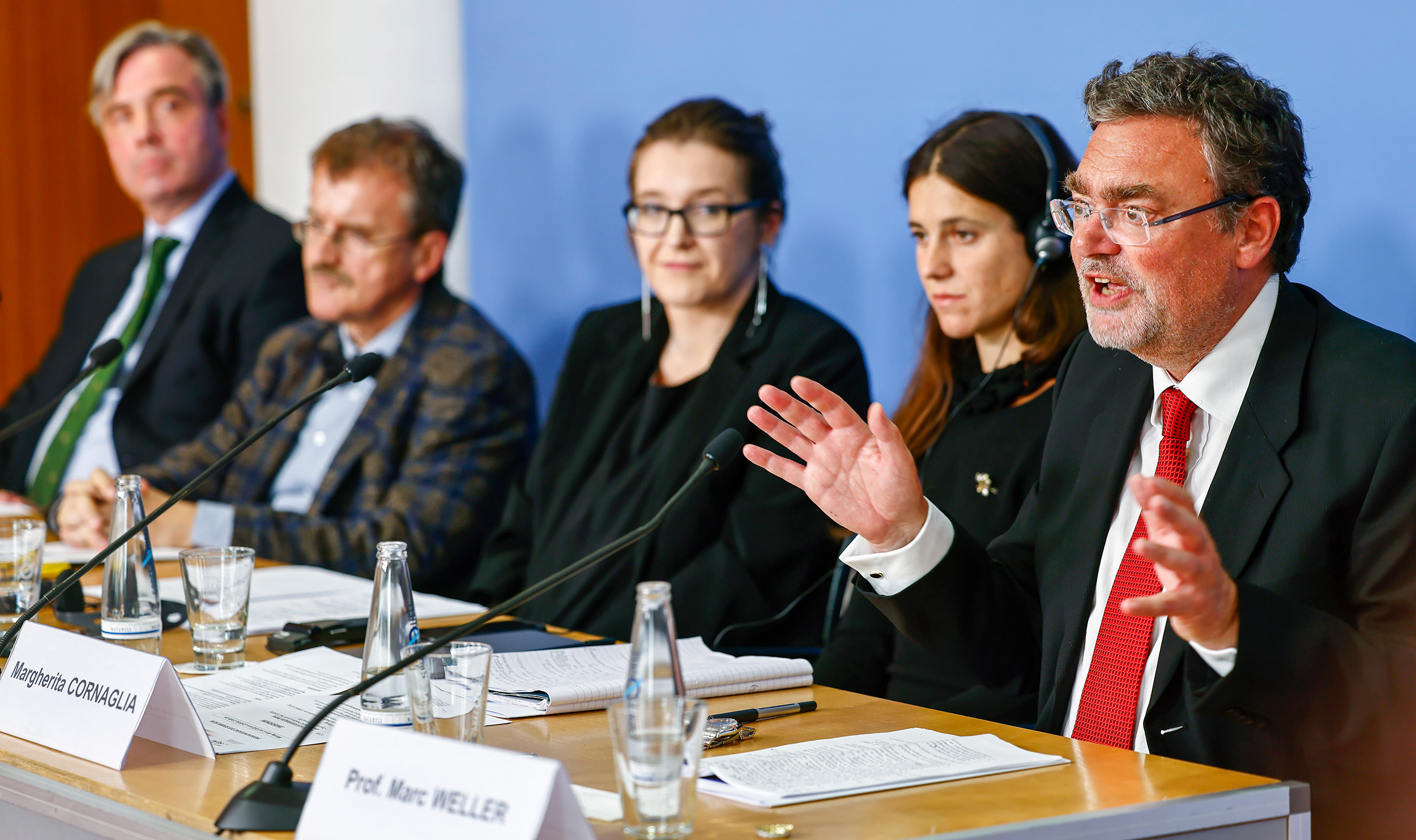On Monday, 10.07.2023, international lawyers from DOUGHTY STREET INTERNATIONAL (DSI) published their initial analysis of potential legal remedies available to the SERBSKI SEJM. It specifies the main demands, legal bases and procedural paths for the Sorbian / Wendish people’s representation and sets out concrete rights for the Sorbian / Wendish people and their democratically elected people’s representation. They also addressed a letter to the BMI.
The remedy study lists three main points of demand:
(i) The recognition of the representative rights of the SERBSKI SEJM in the Federal Republic of Germany,
(ii) Educational autonomy for the Sorbian / Wendish people and their financial security, and
(iii) The recognition of the indigeneity of the Sorbian / Wendish people.
The following specific rights have been highlighted in the legal analysis as being those which Germany, as a state under the rule of law, must grant to the Sorbian / Wendish people and the SERBSKI SEJM as their democratically elected representative:
- The SERBSKI SEJM must be regularly consulted by the German state – as a minimum requirement by international minority law (as it is already the case with other representatives of the Sorbian / Wendish people);
- The election and constitution of the SERBSKI SEJM as a people’s representation does not require a specific legal basis established by the state. On the contrary: The state is not entitled to specifically regulate the elections and the constitution of a people’s representation. According to international law this is the sovereign internal affair of each constituent people and of each minority;
- §5 of the Sorbs Act (Sorbengesetz) in the Federal State (Land) of Saxony is thus obsolete: Both the formation of a Sorbs Council (Sorbenrat) as representatives of the Sorbian/Wendish people appointed by the state and the arbitrary and exclusive selection of a single Sorbian/Wendish umbrella organisation as a consultation partner of the German state are unlawful;
- The Sorbian/Wendish people are entitled to educational and cultural autonomy on the basis of the relevant minority rights derived from international law;
- The state is obliged to provide the Sorbian/Wendish people with the resources needed for educational and cultural autonomy within the framework of self-administration; and
- Even greater territorial rights of co-determination and self-determination would accrue to the Sorbian/Wendish people from ILO Convention 169.
BACKGROUND
According to DSI’s legal analysis, the SERBSKI SEJM can rely on a whole range of legal remedies, each of which already grants fundamental rights to the Sorbian / Wendish people:
(i) The applicable international law and its equivalents in the German Basic Law – Minority Rights,
(ii) The International Covenant on Civil and Political Rights,
(iii) The International Convention on the Rights of the Child and on Discrimination,
(iv) The UNESCO Convention on Aspects of Education,
(v) The 1992 United Nations Declaration on the Rights of Persons belonging to National, Ethnic, Religious and Linguistic Minorities (UNGA Resolution 47/135),
(vi) The United Nations Declaration on the Rights of Indigenous Peoples of 2007 (UNGA Resolution 61/295), and
(vii) ILO Convention 169 on Indigenous and Tribal Peoples of 1989, which was ratified by the Federal Republic of Germany in 2021.
In order to enforce the rights of the Sorbian / Wendish people, SERBSKI SEJM has a number of available procedural avenues, including: the United Nations (“UN”), the European Union (“EU”), the European Court of Human Rights (“ECtHR”) in the case of violations of the human rights guaranteed, and last but not least before the International Labour Organisation (“ILO”).
Special attention should be paid to the institution of the Special Rapporteur on Minority Issues of the United Nations (UN) Council on Human Rights, whom SERBSKI SEJM can immediately engage should the German state refuse to enter into a structured dialogue with SERBSKI SEJM. This could also be accompanied by a UNESCO complaint, which is also a potential mechanism by which to bring states to the negotiating table.
On 4 August 2023, the international consortium of lawyers of the SERBSKI SEJM, DSI from London, sent an official letter to the Federal Ministry of the Interior (BMI), which once again presents the aforementioned contents of the first legal remedy analysis concerning the Sorbian / Wendish people and the SERBSKI SEJM in detail and invites the Federal Government to a structured dialogue with the SERBSKI SEJM.
For the legal opinion summary from the Doughty Street International (DSI) lawyers itself, please click here:
>Serbski Sejm Advice – Executive Summary – 6 pages – EN.pdf
>Serbski Sejm Advice – Executive Summary – 6 pages – DE.pdf
>Serbski Sejm Advice – Executive Summary – 6 pages – HS.pdf
>Serbski Sejm Advice – Executive Summary – 6 pages – CZ.pdf
>Serbski Sejm Advice – Executive Summary – 6 pages – DS.pdf
>Serbski Sejm Advice – Executive Summary – 6 pages – PL.pdf
> For press & media reactions on the legal opinion publication in Germany, please click here.





















